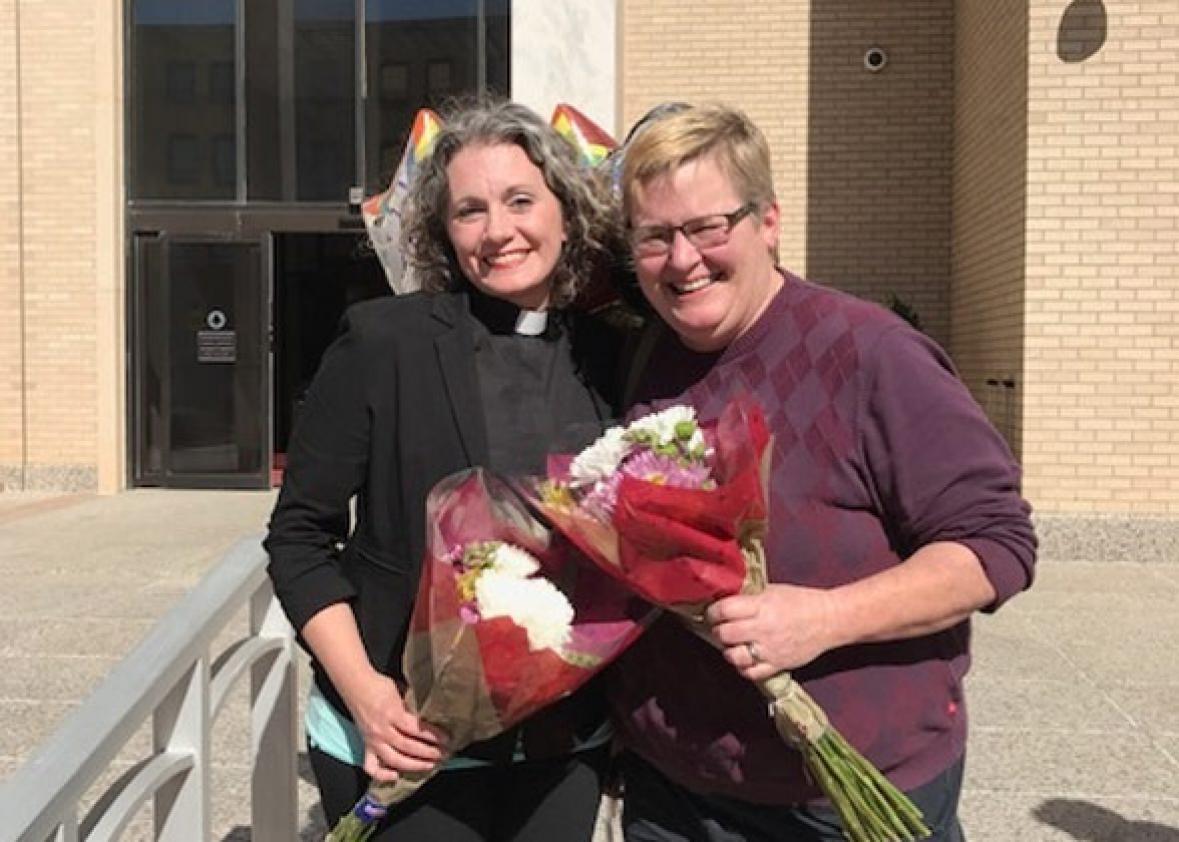On Monday, the 5th U.S. Circuit Court of Appeals signaled that the fight against America’s worst anti-LGBTQ law isn’t over yet.
In June, a panel of judges for the 5th Circuit lifted an injunction on Mississippi’s HB 1523, imperiling the rights of gender and sexual minorities throughout the state. HB 1523 is an “religious freedom” statute with a narrow definition of both religion and freedom: It protects only anti-LGBTQ religious beliefs at the expense of all others. Under the law, landlords, doctors, employers, businesses, adoption agencies, and schools are explicitly permitted to discriminate against LGBTQ people if their religion compels it. No other religious convictions are granted these extra rights.
Because HB 1523 favors certain religious beliefs over others, it would seem to violate the neutrality principle at the heart of the First Amendment’s Establishment Clause. By singling out specific religious viewpoints for special treatment, HB 1523 also endorses religion in contravention of the First Amendment. Moreover, the law accommodates religious practice in a way that imposes a burden on third parties—namely, LGBTQ people—which the Establishment Clause likewise forbids. For these reasons, a federal judge blocked the law in its entirety before it took effect.
The 5th Circuit panel, however, reversed the lower court without addressing these vital constitutional questions. Instead, the panel ruled that the plaintiffs, a group of LGBTQ Mississippians and religious leaders, lacked standing to challenge the law in court because they had no “person confrontation” with it. The logic of this decision was dubious, to say the least. An individual has standing to sue under the Establishment Clause when she encounters a stigmatizing government endorsement of religion: She can, for example, challenge a crèche in a town hall, or religious symbol in a municipal logo, or a sectarian prayer during a public school graduation. But according to the panel, she cannot challenge a law that endorses religion because she cannot “personally confront” the “statutory text.”
By this reasoning, the Mississippi government could enact a law establishing Christianity as its official state religion—and nobody could sue to stop it. That can’t be right. So Roberta Kaplan, the famed LGBTQ rights attorney who represents the plaintiffs, asked the 5th Circuit to rehear the case en banc, with every active circuit judge sitting. The 5th Circuit rarely grants these requests: From 2015 to 2016, it received 194 petitions for en banc rehearing and denied 190 of them. (A majority of active judges must vote to rehear a case in order for the court to go en banc.) According to the court’s rules, an en banc rehearing “is not favored and ordinarily will not be ordered” unless it is necessary to “maintain uniformity of the court’s decisions” or if “the proceeding involves a question of exceptional importance.”
The court has not yet ordered an en banc rehearing in the HB 1523 case. But it did send a letter to the defendants’ attorneys requesting a response to the petition for rehearing en banc by Aug. 10. Such a request is extremely unusual; most en banc requests are answered with a terse denial. The letter indicates that at least one judge, and quite possibly more, are displeased with the panel decision and hope to rehear the case as a full court in order to reach a different outcome. It provides, in other words, a good reason to believe that an en banc rehearing may be in the cards.
I asked Kaplan what she made of the request.
“My clients are very pleased that the 5th Circuit has deemed the standing issues important enough to request a brief” from Mississippi Gov. Phil Bryant, Kaplan told me. “They remain both hopeful that the 5th Circuit will take the case en banc and extremely nervous about what daily life would look like for them in Mississippi if HB 1523 is ever permitted to go into effect.”
The law’s challengers are still far from a final victory. But it now appears probable that the panel’s decision will not stand as the last word on the subject. And that’s terrific news for anybody who cares about LGBTQ rights or genuine religious liberty.
